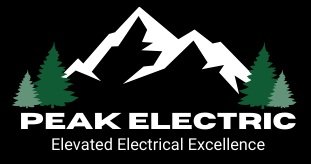What Every Maine Homebuyer Should Know About Electrical Inspections
Buying a home is exciting—but it’s also a big financial risk if you don’t do your homework. Whether you're buying a historic farmhouse in Windham, a cozy cabin near Sebago Lake, or a new build in the Lakes Region, one thing that often gets overlooked in the process is the electrical system.
Most buyers know to get a general home inspection. But what they don’t realize is that a home inspector isn’t trained to fully assess electrical safety or code compliance. That’s where a dedicated electrical inspection comes in—and it could save you thousands of dollars and a lot of regret after closing.
Why Electrical Inspections Matter Before You Buy
Electricity powers nearly everything in your home—lights, appliances, heat, internet, even your morning coffee. But what powers that system? Wires, breakers, panels, and connections that need to be safe, code-compliant, and up to the task.
Here’s why bringing in a licensed electrician before you close is one of the smartest decisions you can make:
Hidden hazards: Old or unsafe wiring can’t always be seen in a typical walk-through.
Negotiating power: An inspection report gives you leverage to ask the seller for repairs or price adjustments.
Avoiding post-sale surprises: You’ll know what needs updating—and how much it could cost—before it’s your responsibility.
Planning upgrades: Want to install a hot tub, EV charger, or mini-split? We can tell you if the home’s current system can handle it.
Common Electrical Red Flags in Maine Homes
Older homes are everywhere in Maine—and many still have electrical systems from 30, 50, or even 70+ years ago. Here’s what we often find:
Knob-and-tube wiring: Extremely outdated and not designed for modern loads. Often ungrounded and can be a fire risk.
Aluminum wiring (1960s–70s): Prone to overheating and loose connections.
Fuses instead of breakers: Hard to find replacements and typically not adequate for modern usage.
Federal Pacific or Zinsco panels: These panels are known for not tripping when they should—posing serious fire risks.
No GFCI protection: Especially dangerous near water (kitchens, baths, garages, outdoors).
DIY electrical work: We often find creative—but unsafe—“solutions” by previous owners that don’t meet code.
Even if everything turns on when you flip a switch, that doesn’t mean it’s safe.
What We Check During a Pre-Purchase Electrical Inspection
At Peak Electric, we take a comprehensive look at the home’s electrical infrastructure—not just what’s working, but how well it’s working and whether it meets modern safety standards. Here’s what we focus on:
Electrical panel type, brand, and capacity
Proper grounding and bonding
Circuit load analysis (are any circuits overloaded?)
Wiring material and visible condition
Smoke detector locations and age
Function and placement of outlets and switches
GFCI/AFCI protection where required
Visible signs of overheating, corrosion, or amateur work
We provide a clear, written summary of what’s safe, what needs updating, and what should be addressed sooner rather than later.
What Happens If You Skip It?
Skipping an electrical inspection may seem like a way to save money upfront, but it can be an expensive gamble. After closing, any issues become your responsibility—not the seller’s.
Here’s what we’ve seen happen:
A couple moves into their first home only to learn they can’t safely run a dryer and microwave at the same time without tripping a breaker.
A new homeowner installs a heat pump only to find out the panel is maxed out and needs a full upgrade.
An insurance claim gets denied after a fire, due to unsafe wiring that wasn’t disclosed or discovered pre-sale.
Electrical issues aren’t just inconvenient—they’re dangerous.
Local Expertise for the Lakes Region
We know Maine homes. From Windham to Casco, Bridgton to Naples, we’ve seen every type of electrical system there is—and we know what fails, what lasts, and what’s worth fixing before move-in. Whether the home you’re buying is 10 years old or 110, we’ve got the tools and experience to give you answers you can trust.
Final Thoughts: Make Your Home a Safe Investment
You wouldn’t buy a car without checking under the hood—so don’t buy a home without checking what powers it. A professional electrical inspection gives you clarity, safety, and peace of mind. It could also give you a better deal when you negotiate with confidence.
Buying a home in Windham or the Lakes Region?
Let Peak Electric help you make an informed, safe investment.
